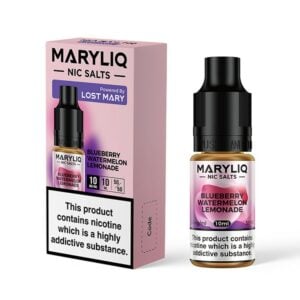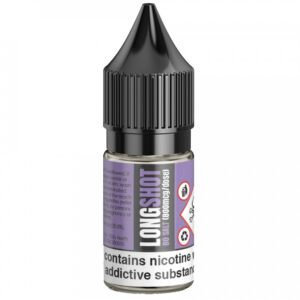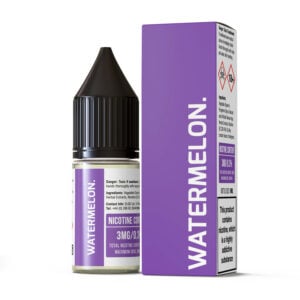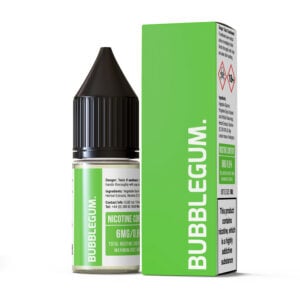The European Council is currently considering the introduction of an EU-wide flavour ban on all nicotine-containing products, including disposable vapes, vape E-liquids and nicotine pouches.
On June 21st, Health Ministers from all 27 European Union states came forward to discuss the proposal of restricting flavours in all vape and consumer nicotine products at the Employment, Social Policy, Health and Consumer Affairs Council (ESPCO) meeting.

The call for a flavour ban comes from Denmark and Latvia, with support from Cyprus, Estonia, Ireland, Lithuania, Luxembourg, Malta, Portugal, Slovenia and Spain, in an aim to “protect young people from harm caused by novel tobacco and nicotine products.”
“Marketing targets children and young people through several tactics, including making e-cigarettes available in many enticing flavours.”
“According to the latest research findings, there is strong evidence that flavours in e-cigarette liquids are very attractive to youths, as young people prefer flavours such as candy, confectionery and sweet beverages, as well as fruits, berries and menthol. These flavours strongly influence young people by decreasing harm perception and increasing the will to try such products.”
They took data from the Health Behaviour in School-aged Children (HBSC) study to justify their reasoning, however this survey failed to measure the nicotine consumption in vaping use among middle school children.
Aiming to incorporate the flavour ban in the next iteration of the EU’s Tobacco Products Directive (TPD), they noted that there are gaps relating to the ‘fast-developing market of novel tobacco and nicotine products.’
Since 2021, Denmark has already banned flavours for vaping products, not including tobacco and mint. However, according to an investigation by the Danish Health Authority, the vast majority of Danish vape users continue to use various flavours.
Opposition on Proposed Flavour Ban
French advocacy group Sovape counters that this initiative would ‘set a dangerous precedent that could jeopardise the use of vaping for millions of Europeans.’
Set up by four major vaping defence associations independent of the tobacco industry: Aiduce, Sovape, Fivape and La Vape du Cœur, a 2023 survey, ‘Merci la Vape’ found that 88% of French vapers who quit smoking defended how the diversity of flavours helps make vaping the most effective aid and an important element in smoking cessation.
According to the study’s findings, banning vaping products could be counterproductive for the public health and there could be an unnecessary increase in risks for individuals as they push vape users to source from illegal or foreign products with unchecked safety levels or ultimately see them switch back to tobacco smoking.
The study’s authors wrote: “Condemning former cigarette smokers to tobacco flavour as their only option is absurd, because it’s precisely the diversity of flavours which facilitates quitting cigarette smoking.
Flavours need to remain available within a regulated and controlled framework. The making and sale of e-liquids by professionals is the best way to guarantee their control for users’ safety.”

Michael Landl, Director of World Vapers’ Alliance (WVA) said:
“This decision undermines public health and disregards the voices of over 62,000 citizens who signed a petition against it.”
Michael Landl
Countries supporting the proposal for a flavour ban including Estonia and Lithuania, have already seen catastrophic consequences from implementing their own flavour bans.
- Since implementing its flavour ban in 2022, Lithuania’s smoking rate increased by 3.57%
- Since implementing its flavour ban in 2019, Estonia’s smoking rate increased by 38.89%
The Tholos Foundation (2022) analysed the effects of the flavour ban and found that almost 60% of Estonians still use their flavours by mixing their own liquids or securing them from the black market.
“By supporting a flavour ban, EU Health Ministers would push millions of adults back to smoking or into the black market, endangering lives and ignoring scientific evidence. A flavour ban would be a huge step backwards for public health and harm reduction.”
Michael Landl
The World Vapers’ Alliance (WVA) stated that: “Scientific research consistently shows that flavours play a crucial role in helping smokers quit. The endorsement of the flavour ban ignores those findings and the clear will of the people, opting instead for a policy that will cause more harm than good.”
Data from the 2020 International Tobacco Control (ITC) Four Country Smoking and Vaping survey found that should a flavour ban be implemented, 28.3% of vape users would find a way to get their banned flavour(s) and 17.1% would stop vaping and go back to smoking traditional cigarettes.

“Every year, 700,000 lives are needlessly lost in the EU due to smoking-related diseases. By recklessly pushing for a flavour ban on safer nicotine alternatives, they are playing with lives and ignoring the clear will of the people. It’s time to stop this madness and listen to science and the citizens they serve.”
Michael Landl
The WVA went on to say: “Flavours play a significant role in helping adult smokers transition away from cigarettes and maintain abstinence from smoking. Ignoring this fact endangers public health and disregards the overwhelming support from the European citizens who have voiced their opposition to a flavour ban.”
In an open letter to the EU Health Ministers, on the behalf of the WVA, Michael Landl expressed their concerns regarding the proposed flavour ban, citing that “the European Commission’s delay in publishing the report on the public consultation about the new Tobacco Products Directive (TPD) has created an opportunity for the Danish proposal to sidestep necessary scientific evaluations and public consultations.”
Urging them to reject the proposed ban, the WVA pleaded that they support policies informed by robust scientific evidence and public opinion instead.
Landl concluded: “As the new Tobacco Products Directive is deliberated, it is imperative to acknowledge the importance of alternative nicotine products in reducing smoking rates and enhancing public health outcomes. This is not merely a regulatory issue; it is a matter of saving lives. Prioritising harm reduction and respecting the voices of the people must be at the forefront of your decision making.”






